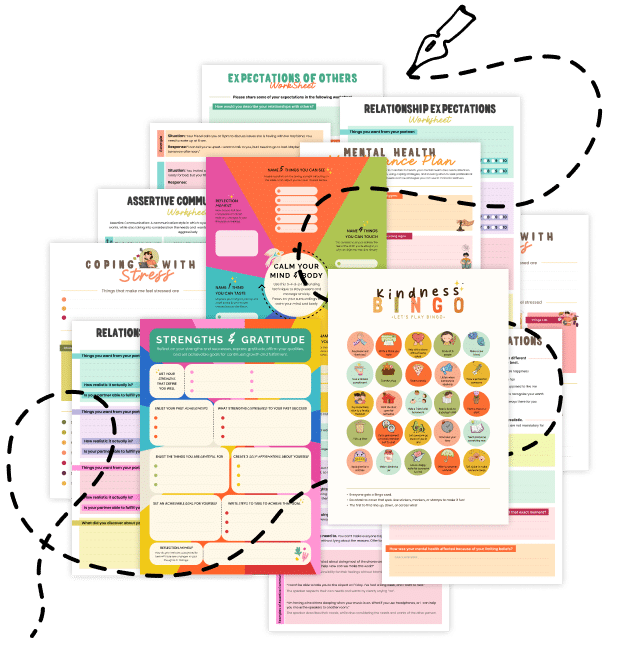20 Things About Self-Efficacy Calibration
Understand how accurately perceiving your own abilities can supercharge motivation, performance, and personal growth. Discover what Self-Efficacy Calibration is, why it matters, and how to fine-tune it for lasting success.
1. What Is Self-Efficacy Calibration?
Self-Efficacy Calibration refers to the alignment between your perceived ability to accomplish a task and your actual skill level. When your self-belief closely matches reality, you’re in a “well-calibrated” state; if you underestimate or overestimate your skills, calibration is off.
2. The Roots of the Concept
Building on psychologist Albert Bandura’s self-efficacy theory, researchers noted that not just self-belief, but the accuracy of that belief, plays a critical role in how effectively people set and achieve goals.
3. Why Calibration Matters
Accurate self-efficacy drives consistent motivation, goal-setting, and persistence. Overconfidence might lead you to tackle tasks you’re not prepared for, while underconfidence can hold you back from opportunities you’re perfectly capable of mastering.
4. Overestimation vs. Underestimation
- Overestimation (Overconfidence): You may neglect preparation or overlook potential obstacles.
- Underestimation (Self-Doubt): You may avoid challenges, missing out on growth and achievements.
5. Signs of Miscalibration
- Repeatedly failing at tasks you assumed would be easy.
- Often avoiding opportunities even though you have the necessary skills.
- Excessive anxiety or stress when faced with new challenges.
6. Self-Efficacy Calibration Role in Learning and Performance
Students and professionals who accurately gauge their abilities tend to pick tasks at the optimal difficulty—hard enough to stretch them, but not so hard they become discouraged or fail repeatedly.
7. Real-World Examples for Self-Efficacy Calibration
- Workplace: An overconfident public speaker might not practice sufficiently, while an underconfident one might skip presentations entirely, even if they’re well-prepared.
- Fitness Goals: Misjudging your endurance can lead to injury (if you overestimate) or stagnation (if you underestimate and avoid pushing yourself).
8. Self-Efficacy Calibration Connection to Goal-Setting
When you know your capabilities, you set goals that are ambitious yet realistic. You’ll find the “sweet spot” for growth—challenging enough to inspire effort, but achievable enough to sustain momentum.
9. Linked to Motivation
People with well-calibrated self-efficacy often experience stronger intrinsic motivation. They trust their ability to learn from setbacks and steadily improve, which keeps them engaged in the face of difficulty.
10. Feedback Loops
Frequent, honest feedback—whether from peers, mentors, or self-assessment—helps you adjust your self-efficacy beliefs. Constructive critiques, performance data, and even self-reflection maintain accurate calibration over time.
11. Emotional Ramifications
Misjudged self-efficacy can lead to chronic stress or self-blame if you frequently fail due to overconfidence. Underconfidence can trigger imposter syndrome or persistent anxiety that you’re “not good enough.”
12. Incremental Improvements
Calibration isn’t a one-and-done deal; it’s an ongoing process. Each new challenge or skill level requires you to re-evaluate and fine-tune how confident you feel versus how prepared you really are.
13. Building Self-Awareness
Techniques like journaling, recording your successes and failures, and noting how your expectations lined up with outcomes are key to sharpening self-awareness—fuel for more accurate self-efficacy.
14. Influence of Social Comparisons
Humans naturally gauge abilities by comparing themselves to others. Over-reliance on this can distort self-efficacy if you’re not accounting for differing skill sets, experiences, or learning curves.
15. Mindset Matters
A growth mindset encourages you to see abilities as developable. Viewing mistakes as learning opportunities—rather than proof of inability—keeps you from either inflating or deflating your actual skills.
16. Cultural and Environmental Factors
Supportive environments that reward progress and constructive feedback foster better calibration. Conversely, cultures or work settings emphasizing perfection or punitive measures can skew self-belief in both directions.
17. Calibration in Teams
Accurate self-efficacy helps you know when to ask for help or delegate tasks. Overconfident teammates might take on too much, while underconfident members might not contribute their valuable insights.
18. Pitfalls of Extremes
- Chronic Overconfidence: Missed opportunities for growth, overlooked weaknesses, and frequent burnout.
- Chronic Underconfidence: Unmet potential, learned helplessness, and fear of stepping outside comfort zones.
19. The Importance of Reflection
Routine check-ins, like end-of-day retrospectives, force you to align expectations with results. This habit strengthens calibration over time, boosting resilience and reducing stress.
20. Related Topics to Explore
- Implementation Intentions: Turn well-calibrated goals into concrete action plans.
- Grit Priming: Foster perseverance that matches your true skill level.
- Intrinsic Motivation Cultivation: Stay driven by inner purpose rather than external pressure.
- Self-Consistency Bias: Recognize how the desire to appear consistent can distort self-efficacy beliefs.
Quick Tips to Boost Self-Efficacy Calibration
- Track Performance: Keep detailed records of predictions vs. outcomes, noting where you were spot-on or off-base.
- Seek Honest Feedback: Ask mentors, peers, or coaches to evaluate your abilities. Balance internal insights with external viewpoints.
- Engage in Gradual Challenges: Gradually increase the difficulty of tasks to expand your comfort zone without big leaps into the unknown.
- Adopt a Learning Mindset: Focus on continuous improvement over static notions of “talent” or “limitations.”
- Celebrate Accurate Predictions: Reward yourself when your expectations match your results—it reinforces calibrating behaviors.
By fine-tuning how accurately you gauge your own abilities, you’ll set more meaningful goals, reduce unnecessary stress, and foster a healthy blend of ambition and pragmatism. Share this article with anyone eager to sharpen their self-awareness or align their self-confidence with reality—and watch how better calibration leads to better outcomes!


